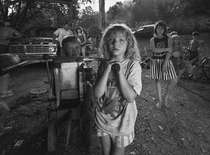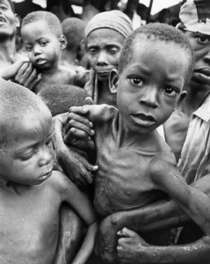PHOTO: The Living End I weep and my eyes dissolve in tears, since the comforter who could revive me is far away. My sons are in despair, the enemy has proved too strong. Mid-morning reading Lamentations 1:16
I weep and my eyes dissolve in tears, since the comforter who could revive me is far away. My sons are in despair, the enemy has proved too strong. Mid-morning reading Lamentations 1:16
This feast was always difficult for me, offended as I was by the injustice of these senseless deaths: countless young boys killed because they were born at the wrong time and place.
The birth of Jesus, Love incarnate, occasioned this slaughter, which is both foreshadowing of fear-induced violence engendered in some by his message, and a metaphor for those throughout history who suffer because of circumstance rather than consequence.
Who are today’s Holy Innocents? If they do not die from bombing raids, hostile fire, or explosives, children born in war-ravaged countries may die of starvation and disease. Those who survive carry mental and/or physical scars for the rest of their lives. Countless number of children born in countries overwhelmed with AIDS and other diseases die before they have a chance to live. And what of the effects of poverty on the most vulnerable among us?
When thinking of “poverty,” images of children in other, poor countries may come to mind. However, poverty engulfs an increasing number of people including children in our country. According the US Census Bureau, the poverty rate for children under 18 increased from 19% to 20.7% between 2008 and 2009. Approximately 15.5 million children in the US live in poverty, and that does not include the 460,000 who are not included in the count because they do not reside with relatives.
 Perhaps my discomfort with this feast has more to do with my unintentional complicity in the poverty cycle in my own country than with the plight of young boys 2,000 years ago. What can I change? How can I live in a way that does not contribute to the suffering of Holy Innocents in my own time and place? What can I do to contribute to the solution?
Perhaps my discomfort with this feast has more to do with my unintentional complicity in the poverty cycle in my own country than with the plight of young boys 2,000 years ago. What can I change? How can I live in a way that does not contribute to the suffering of Holy Innocents in my own time and place? What can I do to contribute to the solution?
I will ponder these questions of following the teaching and example of Jesus as time for “New Year’s Resolutions” approach.
© 2010 Mary van Balen

Speak Your Mind